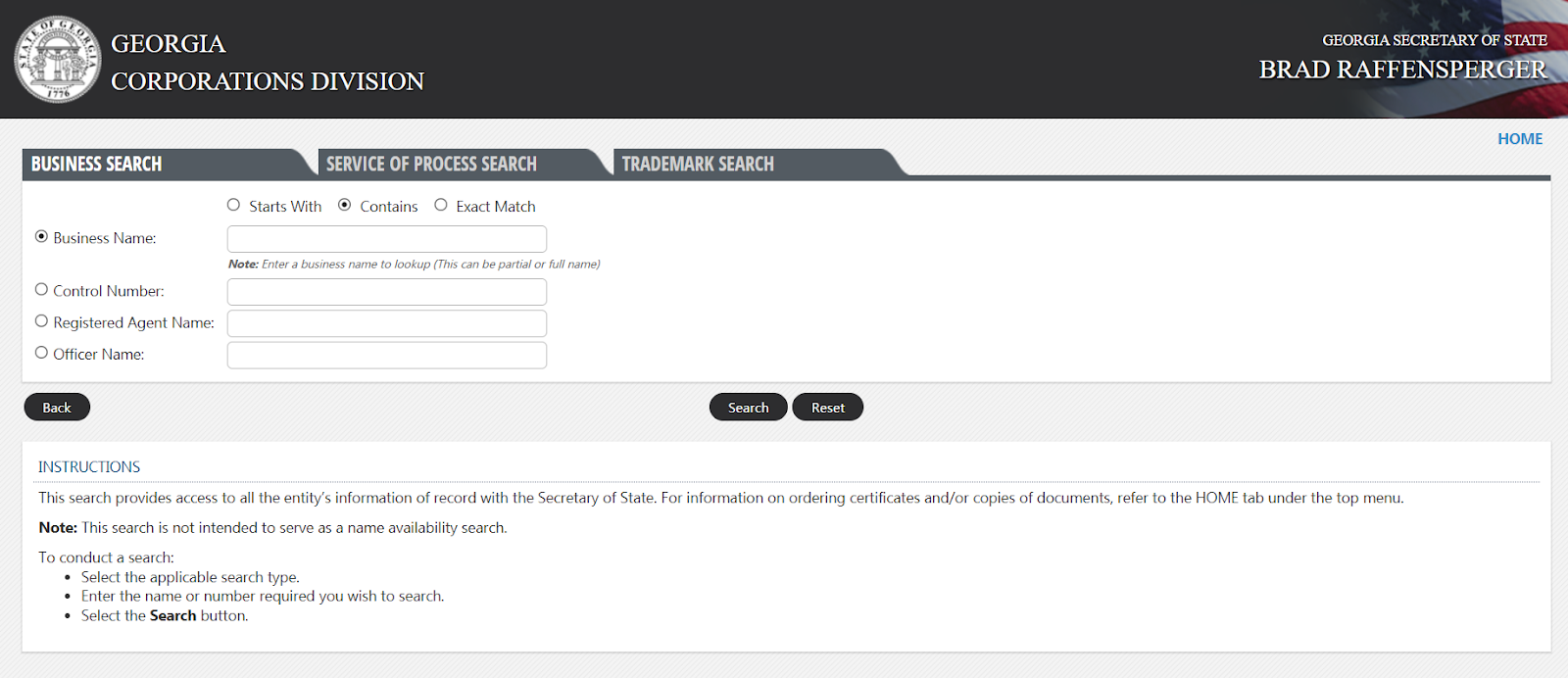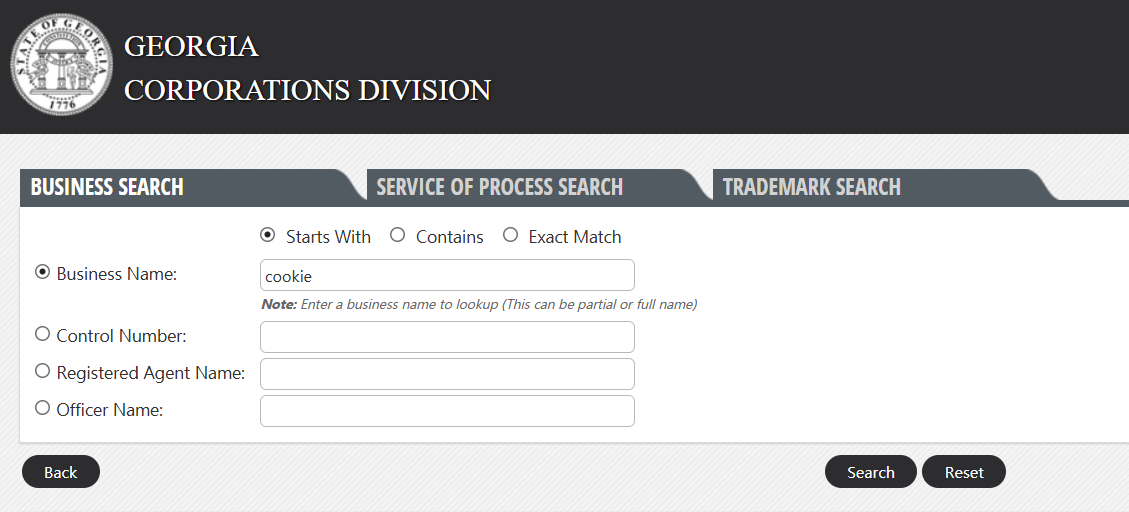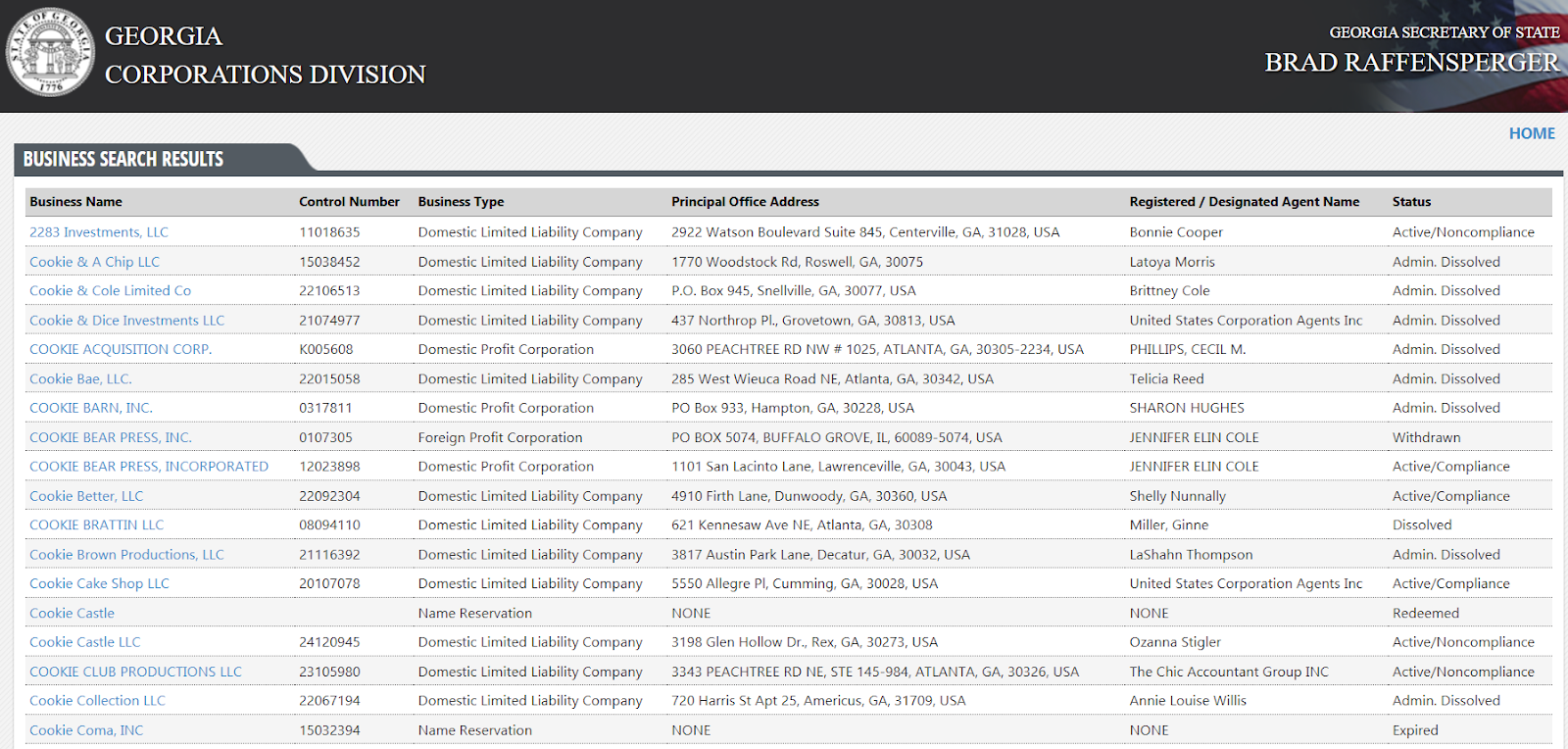Establishing and maintaining a business in Georgia demands strict adherence to state regulations. Conducting a Georgia Business Entity Search is a pivotal step for guaranteeing legal compliance, mitigating risks, and protecting your business interests. Whether you are in the process of starting a new venture, evaluating an existing entity, or engaging in a partnership, understanding the nuances of entity registration is critical to safeguarding your operations.
This blog provides an in-depth examination of the Georgia Business Entity Search process, its significance in business decision-making, and practical insights on overcoming common challenges.
What is a Georgia Business Entity Search?
A Georgia business entity search refers to the process of querying the state’s official business registry through the Georgia Secretary of State’s online portal. This system serves as the authoritative source for:
- Confirming the availability of a proposed business name
- Verifying an entity’s legal status (active, inactive, or dissolved)
- Accessing filing histories, registered agent details, and principal office addresses
- Reviewing documents like Articles of Incorporation or Organization
The Georgia SOS business entity search exclusively covers state-registered entities, including corporations, limited liability companies (LLCs), and limited partnerships.
Notably, sole proprietorships and general partnerships without registered trade names (DBAs) do not appear in the database. Entity management tools, such as this search, help make sure that your businesses stay compliant and up-to-date with Georgia’s regulations.
Why Conduct a Georgia Business Entity Search?
A Georgia Business Entity Search helps you verify key information about a business, making sure of its legitimacy and compliance. Here are the main reasons why conducting this search is important:
Name Availability Verification
Georgia mandates that business names be “distinguishable on the records” of the Secretary of State. The state of Georgia business entity search tool identifies conflicts, such as “Peachtree Solutions LLC” versus “Peachtree Solutions Inc.,” which may not be automatically flagged but could lead to legal disputes.
Names must adhere to structural requirements (e.g., LLCs must include “LLC” or “Limited Liability Company”).
Due Diligence & Risk Mitigation
Before partnerships, acquisitions, or investments, the Georgia Secretary of state business entity search provides:
- Registration dates that confirm the operational history.
- Compliance status (e.g., “active/noncompliance” indicates pending dissolution for unpaid fees).
- Registered agent details for legal correspondence.

Legal Compliance
Businesses must file annual registrations to maintain an active status. Failure to comply results in administrative dissolution, stripping liability protections from owners. Regular checks help avoid penalties and operational disruptions.
Types of Business Entities in Georgia
The Georgia Secretary of State’s business entity search database encompasses a diverse array of business structures, each with its own unique characteristics:
1. Corporations
- C Corporations: Subject to 5.75% state corporate income tax
- S Corporations: Pass-through taxation for qualifying entities
- Nonprofit Corporations: Tax-exempt organizations serving public interests
- Professional Corporations (PCs): For licensed professionals like attorneys or accountants
Note: Corporations file Articles of Incorporation and must adopt bylaws.
2. Limited Liability Companies (LLCs)
LLCs combine liability protection with operational flexibility. They file Articles of Organization and may choose pass-through taxation. Georgia imposes an annual $55 fee for LLCs.
3. Limited Partnerships (LPs)
LPs consist of general partners (unlimited liability) and limited partners (passive investors). They require a Certificate of Limited Partnership.
4. Limited Liability Partnerships (LLPs)
Reserved for licensed professionals, LLPs shield partners from liabilities arising from others’ misconduct.
5. Unregistered Entities
Sole proprietorships and general partnerships only appear when using registered DBAs. These entities lack liability protection.
Step-by-Step Methods to Perform a Georgia Business Entity Search
To perform a thorough Georgia Business Entity Search, follow these simple steps to gather all the necessary information. Here’s how to go about it:
Step 1: Access the Official Portal
Visit the Georgia Corporations Division business search page. This is the official and most reliable source for entity information.
Step 2: Choose Search Criteria
- Business Name: Full or partial names (case-insensitive)
- Control Number: Unique 12-digit identifier for existing entities
- Registered Agent: Name of the legal contact
- Officer Name: Key personnel listed in filings

Step 3: Execute the Search
Select “Starts With,” “Contains,” or “Exact Match” filters. For example, searching “Atlanta Tech” returns “Atlanta Tech Ventures LLC” and “Atlanta Technology Group Inc.”.

Step 4: Analyze Results
The portal displays:
- Entity Status: Active, inactive, dissolved, or administratively dissolved
- Filing History: Dates of formation, annual registrations, and amendments
- Registered Agent: Name and address for legal notices

Step 5: Retrieve Documents
You can download free copies of filings such as Articles of Incorporation or pay a nominal fee (usually $10) for certified copies required for legal or financial transactions.
Interpreting Entity Search Results
When reviewing the results of business entity search results in Georgia, it’s important to understand the key details provided. The following table will guide you through how to interpret each section of the results:
Entities marked as “active/noncompliance” face dissolution if unresolved within 60 days.
Common Challenges During Georgia Business Searches
While conducting a Georgia Business Entity Search, you may encounter several challenges that could affect the accuracy or completeness of the results. Below are some common issues to be aware of:
Name Conflicts and Similarities
Georgia enforces strict name distinguishability rules, which means minor variations or phonetic similarities can cause confusion or rejection. For example, “Savannah Bakery LLC” and “Savannah Bakery Inc.” are considered too similar. To avoid this, consider adding geographic or descriptive modifiers to your name.
Outdated or Delayed Records
New filings, amendments, or status changes may take up to 48 hours to appear in the database due to processing times. Always verify with the Secretary of State if you suspect recent changes are missing.
Unregistered Entities Not Listed
Sole proprietorships and general partnerships without registered DBAs do not appear in the database. To research these, check local county clerks or business licensing offices.
Next Steps After Your Georgia Entity Search
Once you’ve completed your Georgia Business Entity Search, there are several important actions you should take to make sure that your business operations are compliant and properly registered. Here’s what to do next:
For New Businesses
- Reserve Your Name: File a Name Reservation Request (pay an additional $25 fee/ $35 if filing in paper format; name is reserved for 30 days).
- Register Your Entity: Submit formation documents online ($100–$110 fee).
- Secure Licenses: Obtain local business licenses and state permits (e.g., Georgia sales tax permits).
For Existing Entities
- Update Records: Use the Georgia Secretary of State business entity search portal to modify registered agents or addresses.
- Reinstate Status: Pay overdue fees of $255 penalty for administrative dissolution.
Simplify Your Georgia Business Setup with Commenda
Meeting Georgia’s compliance requirements demands precision and attention to detail. Commenda offers comprehensive entity management solutions to streamline the process. The platform supports automated filings, helping you track annual registration deadlines and avoid dissolution.
With AI-driven name conflict analysis, we perform checks against state and federal trademarks to prevent name disputes. Real-time compliance monitoring provides alerts for status changes or upcoming fee deadlines.
Our platform reduces registration errors and makes sure that your business remains fully compliant with Georgia’s regulations, offering peace of mind and saving valuable time for other critical business activities. Schedule a demo!













